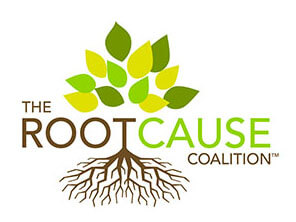Americans are Deeply Concerned about Severe Weather and Related Health Issues
Americans are Deeply Concerned about Severe Weather and Related Health Issues
The Root Cause Coalition’s Latest Public Insights Research Underscores Americans Appetite to Prioritize Climate as a Priority Policy Issue
Recent research from The Root Cause Coalition provides insights into how Americans think about and consider climate change, severe weather and its connection to individual and public health. “There are many health issues Americans are concerned about when it comes to severe weather and climate change,” states Barbara Petee, Executive Director of the Coalition. “Among those who expressed general concern about severe weather and health, lack of access to clean water, electricity, food and poor air quality were among the top concerns cited.”
Key findings from this survey include the following:
- Three-quarters (75%) of Americans are at least somewhat concerned about being affected by severe weather
- Over 9 in 10 (91%) of those concerned about severe weather are at least somewhat concerned about poor air quality
- Nearly 9 in 10 (87%) believe that policy makers should make the connection between climate hazards and health a priority
- Over one-third (39%) believe the Federal government has the top responsibility for addressing the impact of climate on community health
- Over 8 in 10 (83%) of Americans believe that climate will have at least somewhat of an impact on everyday life for future generations
Individuals are Making the Connection between Place and Health Outcomes. Over 9 in 10 (91%) Americans believe that where one lives affects individual health and well-being, especially parents, those who are college-educated and those earning $80,000/year or more. And when asked to rank the top issue that affects health and well-being where you live, neighborhood safety was most frequently cited (24%), followed by air quality (18%), access to medical care (17%) and access to nutritious food (16%).
Americans Overwhelmingly believe Addressing Climate Hazards and Health Should be a Policy Priority. Concern about climate and severe weather has translated into, among other outcomes, the individual desire for policy makers to ensure this issue is a policy priority. In fact,
nearly half (46%) believe that the connection between climate and health should be the top priority while nearly 9 in 10 (87%) believe policy makers should make it one of a few priorities. This is especially true for younger adults (those under 45), those earning $80,000/year or more, and parents. Only 8% say policy makers should not make this issue a priority and 5% say they aren’t sure.
And when it comes to who and where these issues should be addressed, federal government agencies are deemed most responsible (39% say they have the top responsibility), followed by state/local governments (20%) and individuals/families (16%). Older adults seem to believe federal government agencies have an even greater responsibility than other age groups (53% say they have top responsibility).
The Effects of Our Climate are Being Felt Now and Will Continue to Grow in the Future. Most Americans (73%) report being at least somewhat familiar with the connection between climate hazards and community health. But familiarity varies significantly by demographic – males, those who are under 45, higher income earners, those who are college-educated and parents all report significantly more familiarity compared to other sub-groups. Older adults – those over 65 years of age – report the least amount of familiarity (only 13% say they are very familiar while 36% also say they are unfamiliar).
At the same time, nearly 8 in 10 Americans believe climate has at least somewhat of an impact on everyday life with parents reporting the effects even more than other demographics. A slightly higher percentage (83%) believe that climate will at least somewhat impact everyday life for future generations including changes to the ecosystem, more extreme/unpredictable weather and air quality that impacts health, among other issues.
“The Root Cause Coalition is committed to addressing the issue of climate and environmental change as the impact significantly effects the health and well-being of all people,” said Ms. Petee. “As a cross-sector organization working to achieve health equity, the climate must be a priority for us, and all who are engaged in this work.”
Methodology
1,014 interviews among adults age 18+ were conducted from October 7-11, 2021, using an online survey. The results were weighted to ensure proportional responses. The Bayesian confidence interval for 1,000 interviews is 3.5, which is roughly equivalent to a margin of error of ±3.1 at the 95% confidence level. The Root Cause Coalition Co-founded by AARP Foundation and ProMedica in 2015, The Root Cause Coalition is a non-profit member-driven organization comprised of more than 90 leading health systems, hospital associations, foundations, businesses, national and community nonprofits, health insurers, academic institutions, local governments, and policy centers. Our common goal is to achieve health equity for every American.
To view the full report, click here.
